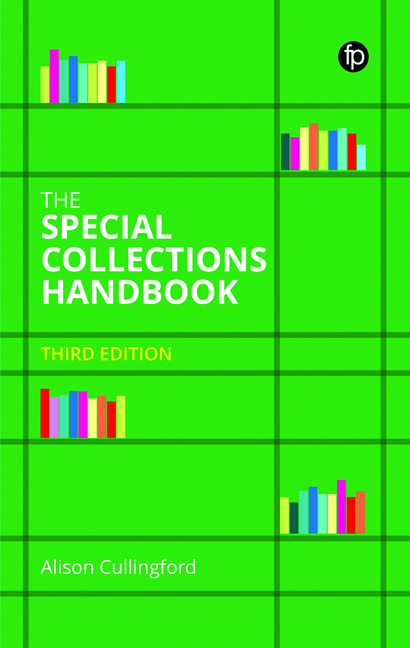Book contents
Afterword - Special Collections Futures?
Published online by Cambridge University Press: 28 April 2022
Summary
Despite the turbulence of the last few years, the longer-term technological and social patterns affecting Special Collections have remained consistent. Assuming these patterns continue, we can expect the following clusters of trends to dominate. Each raises big questions for Special Collections practitioners.
1 Technological. The digital shift. Big data, convergence and linking between systems, new kinds of metadata, potential of artificial intelligence, crowd power, hyper-personalised services. Research, teaching, service delivery, metadata and more are being transformed. How do we ensure all collections and users benefit, and that innovations are introduced to benefit people?
2 People power. Increasing recognition of the importance of equality, diversity and inclusion, tackling contested heritage and systemic injustices. Our audiences are seeking experiences, stories and authenticity, along with seamless, universal access; approaches to pedagogy are more active. How do we do better individually, in organisations and as a society while coping with growing pressures?
3 Sustainability. Collections offer vast datasets that provide evidence to tackle climate change and other challenges. How else can we set examples of responsible stewardship and protect our world?
Our ability to navigate these trends is affected by complex pressures, including the longterm effects of the pandemic on organisational finances. Strategic alignment with mission, for example, via research, teaching or outreach, and tight financial management will be key for the difficult times to come.
The trend towards managerialism and accountability is likely to continue but an organisation working effectively in this environment is likely to do better by empowering staff and seeking agile, flexible and open mindsets. Such thinking will help us tackle the questions above.
I wish you well with whatever your Special Collections future holds and I hope this book will help you on that journey.
- Type
- Chapter
- Information
- The Special Collections Handbook , pp. 355 - 356Publisher: FacetPrint publication year: 2022



